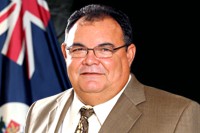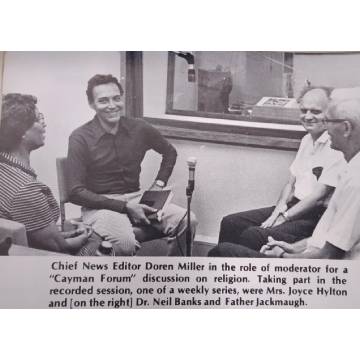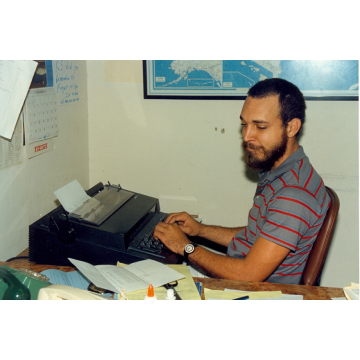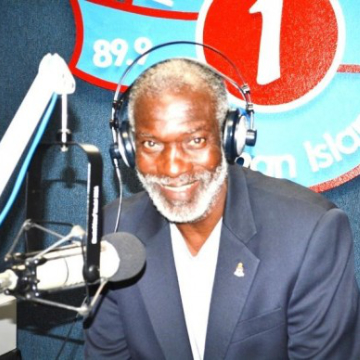News
Opposition Calls for Deliberative Approach to UK Proposals

Responding to recent remarks by Premier Alden McLaughlin that implementation of certain proposals by a UK House of Commons committee would trigger his “lead[ing] the charge for independence”, the Leader of the Opposition the Hon. Ezzard Miller has called for a more deliberative response reflecting an “appropriate level of seriousness.”
The Leader of the Opposition’s comments follow Mr. McLaughlin’s remarks at the recent Chamber of Commerce legislative luncheon.
“With Cayman obviously not being ready for independence, I can only infer from the Hon. Premier’s remarks that he regards the report as of no consequence or importance at this stage,” Mr. Miller said.
“That is unfortunate, as any perception of potential triggers of independence at this time should be taken very seriously and every effort should be made to deter any internal or external untimely precipitating actions,” Mr. Miller said.
“A better approach would be to give active consideration to the report and respond in a timely way with a view to forestalling any potential negative consequences,” Mr. Miller said, adding: “My first option would be to channel the passion inspired by the report into tabling and debating it in the Cayman Islands Legislative Assembly, with the aim of formulating a joint position and communicating that to the UK through the appropriate channels.”
The report, issued by the House of Commons Foreign Affairs Committee, is entitled “Global Britain and the British Overseas Territories: Resetting the Relationship.” The Foreign Affairs Committee was appointed by the House of Commons, and the report was published by “authority of the House of Commons” on February 21, 2019. Five of the eleven members comprising the Foreign Affairs Committee, including the chair, are members of the Conservative Party now in power.
Mr. Miller said that, whilst it is true that the report originates with a committee of the House of Commons and not with the executive arm of the UK Government, and therefore at this point can be said to hold no immediate threat, “The committee will eventually channel these recommendations to the House of Commons and the proposals could ultimately find their way into legislation that, if passed, would bind the UK Government.”
Drawing a parallel with the Open Registry which is due to be implemented in the OTs in 2023, Mr. Miller noted that in that case the corresponding legislation presented in the House of Commons was opposed by the executive, but it bound them nevertheless when it was subsequently passed.
The recommendations being met with concern by many persons in Cayman are those proposing, respectively, that all locally resident UK and British Overseas Territory citizens be given the right to vote and hold elected office and that same-sex marriage be legalised. Barring the highly unlikely possibility of Cayman acceding to these controversial recommendations, if the corresponding legislation is passed in the House of Commons the UK Government would issue an Order in Council bringing them into force in the Cayman Islands.
“I join the Premier in his concerns about these two issues as well as others in the report, but where our views diverge is with respect to the notion that we should sit tight and hope that the recommendations go nowhere, while at the same time hold independence as a sort of sword of Damocles in the event the proposals do materialize as local law,” Mr. Miller said. “When we hear a train whistle, we don’t need to wait to see the train before we take pre-emptive action. We must take appropriate formal action now, debate the report in the Cayman Islands Legislature and report our concerns to the UK through appropriate channels.”
Mr. Miller explained: “We do not want external actions to push us towards a state for which we are not ready. We must take advantage of all available diplomatic options to press home our views with the hope that we can resolve issues without any harmful impacts for the Islands and our people.”
The Leader of the Opposition said, nevertheless, that as a British Overseas Territory “We must begin from now to prepare for greater internal management of our own affairs by improving our standards of governance and by investing in our people and our institutions that would foster strengthening of our governance capacity.”
Mr. Miller said that such preparation must include greater attention to safeguarding and expanding our economy, while continually assessing global trends such as Brexit and threats to our financial industry.
However, a very important aspect of preparation was “to begin to consider the impacts and value of constitutional progression,” he said, adding: “We must begin to set benchmarks in governance as a part of a naturally evolving process of constitutional development.”
Looking ahead, Mr. Miller said: “I do hope that one day we will arrive at a constitutional status that would allow us a significant level of true self-governance,” and added: “If we are to achieve that, as a developing territory we should begin communicating about and debating the advantages and values of constitutional advancement.”
However, Mr. Miller added: “But right at this juncture, we should not be making rash statements about independence, however passionately we may feel.”












